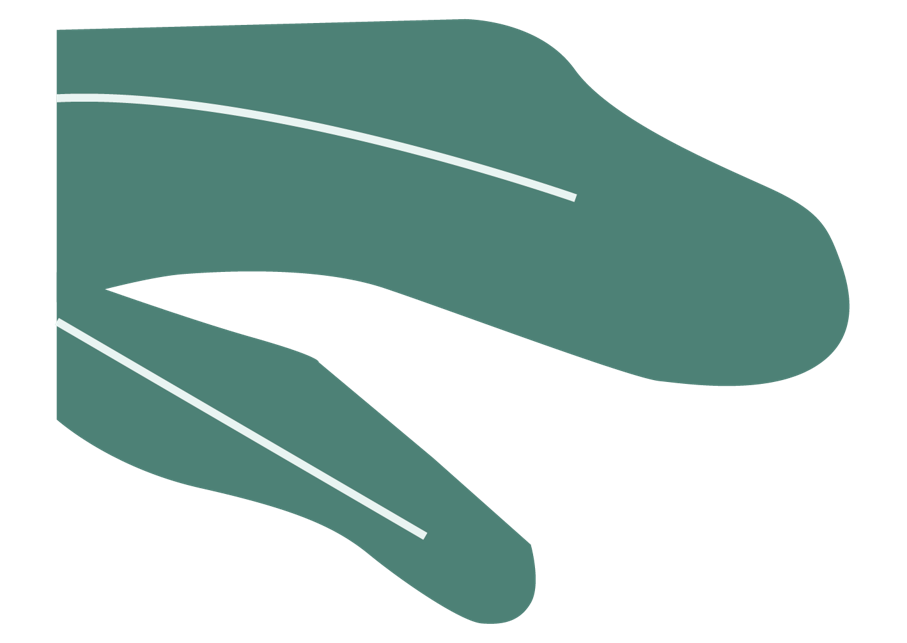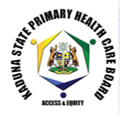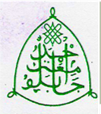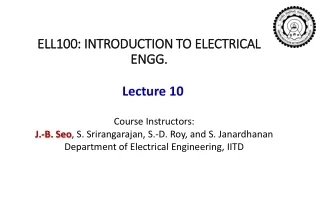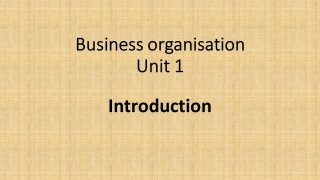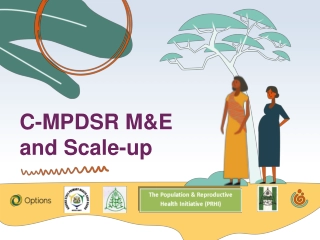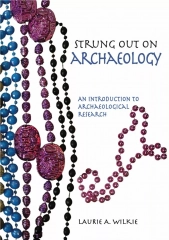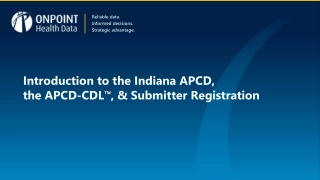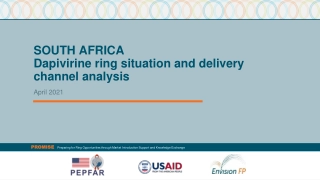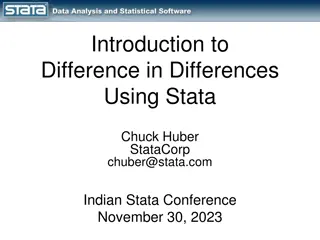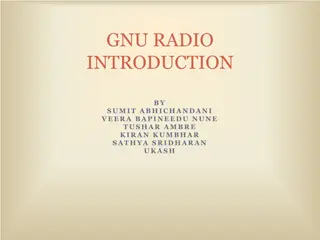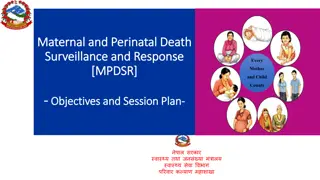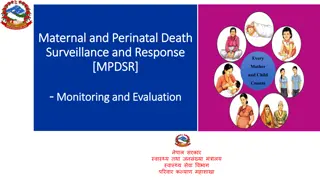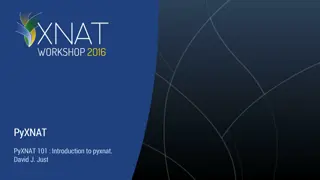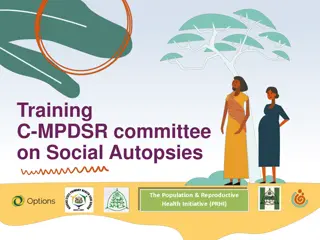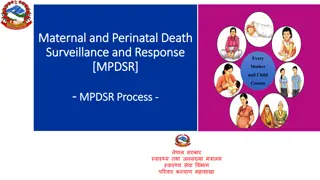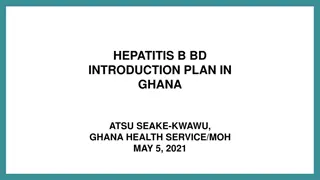C-MPDSR, an introduction
Community-MPDSR approach, which empowers stakeholders to prevent future maternal and perinatal deaths through joint actions and evidence-based interventions. Addressing challenges and promoting sustainable systems for monitoring deaths.
Download Presentation

Please find below an Image/Link to download the presentation.
The content on the website is provided AS IS for your information and personal use only. It may not be sold, licensed, or shared on other websites without obtaining consent from the author.If you encounter any issues during the download, it is possible that the publisher has removed the file from their server.
You are allowed to download the files provided on this website for personal or commercial use, subject to the condition that they are used lawfully. All files are the property of their respective owners.
The content on the website is provided AS IS for your information and personal use only. It may not be sold, licensed, or shared on other websites without obtaining consent from the author.
E N D
Presentation Transcript
C-MPDSR, an introduction
This module is for State stakeholders who wants to set up C-MPDSR in their location MPDSR trainers who want to know more on the rationale behind Community-MPDSR
MPDSR - The approach Maternal and Perinatal Death Surveillance and Response (MPDSR) provides rich information on the underlying causes of individual deaths and stimulates evidence-based action to prevent future deaths. The critical response component is what makes MPDSR so impactful. Parties that often work in silos come together to review the same data, prioritize problems and negotiate for policy change, resource allocation and generate powerful local solutions.
MPDSR Remaining problems Insufficient understanding and information on root causes of maternal and perinatal death prevents joint action to address problems COVID-19 reduces access to and demand for facility-based services; community-based mortalities are expected to rise Insufficient action by government to prevent deaths and communities powerless to affect change
Community-MPDSR Maternal and perinatal deaths are reviewed irrespective of the place of death, be it at home, facility or in transit Focus on joint verbal autopsy by PHC staff and communities, enabling joint identification of problem and take action Community awareness of problems and relationships between misinformation, myths, harmful practices and deaths Enables evidence informed action by Communities and PHC staff to strengthen health services A reliable and sustainable system for documenting and monitoring maternal and perinatal deaths at the PHC cum community levels
Community MPDSR - Rationale C-MPDSR enables communities, health workers and governments to understand why mothers and newborns are dying irrespective of the place of death, be it at home, in transit to a facility, or at the facility Understanding why deaths happen is key to preventing them in the future While C-MPDSR pilots have enabled communities and health workers to take action to prevent future deaths, it is often not sustained or rolled out at scale. This initiative will provide a unique opportunity to design C-MPDSR in a way that makes it possible for it to be rolled out at state level
Expected results Improved dialogue between communities and PHC on causes of death through verbal and social autopsies Increased awareness and open discussion in communities on maternal and perinatal deaths Joint action planning between communities and facilities Increased understanding of the challenges that both communities and health facilities face Implementation of response/actions identified through the maternal and perinatal death reviews Improved community norms and behaviors on health seeking, evidenced by ANC and SBA rates increasing
Implementation approach Health systems integration / connecting A key challenge for c-MPDSR models is achieving impact at scale and in a sustainable way. Addressing this challenge is at the heart of the E4A-MamaYe approach. We will be working with government, health professional bodies and communities to co-design a model for c-MDPSR that can be brought to scale. Key to this is ensuring that the approach is integrated into the existing health system, using existing capacity and resources. Joint learning We support the Ministries of Health (MoH) across geographies to employ a systematic and collaborative approach to learning throughout the lifecycle of the project. Learning will be embedded in the design and implementation of activities and will be used to inform decision-making and programme adaptations to ensure iterative improvements towards a sustainable model for c-MPDSR. Driven by Primary Health Care (PHC) facilities and communities Primary health care facilities (PHCs) and community committees are at the heart of the process to ensure that community based maternal and perinatal deaths are systematically tracked, counted, reviewed and acted upon to address root causes. Cost-effectiveness Our approach to value for money, is informed by principles of economy, efficiency, equity and effectiveness. Our measures against these principles allow us to measure value for money on a project that, by its nature, needs to allow for testing, learning and responsive investment and design decisions and so cannot be looked at and assessed on the basis of a one-off or consistent inputs and outputs. We provide training and mentorship to PHCs and community committee members on how to conduct verbal and social autopsy by recognizing sensitivities and enabling a safe environment in which community members feel comfortable discussing or being asked questions on departed loved ones. Global Public goods Globally, Options is an active member of the WHO MPDSR Technical Working Group, where we share our tools and best practice examples with other partners and support the development of technical guidance. Our longstanding involvement in this group provides a key platform for enabling the innovative approach for c-level MPDSR to be integrated into good practice across a range of practitioners, thereby promoting results at scale (e.g., packaging these into global public goods ). We consult partners within this TWG and share our insights throughout this process.
Access the Brief Taking MPDSR further: Community-MPDSR Access the Visual C-MPDSR Roadmap
E4A-MamaYe C-MPDSR Pack Evidence for Action (E4A) - MamaYe is a programme led by African experts in Kenya and Nigeria to improve the Maternal and Newborn Health. It is managed by Options Consultancy Services Ltd with funding from the Bill & Melinda Gates Foundation. The findings and conclusions contained within are those of the authors and do not necessarily reflect positions or policies of the Bill & Melinda Gates Foundation. FURTHER INFORMATION This guidance was produced by E4A-MamaYe in collaboration with Kaduna State government and Population and Reproductive Health Initiative (PRHI) to design and implement a sustainable and scalable community Maternal, Perinatal, Death Surveillance & Response (c-MPDSR).
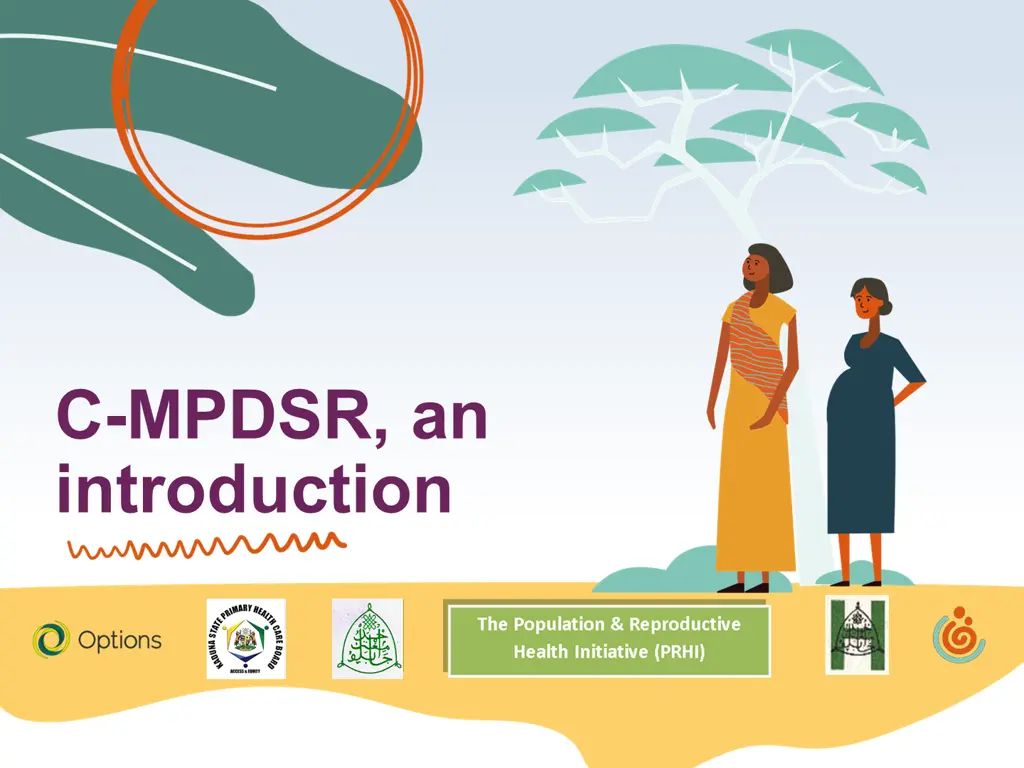
 undefined
undefined
